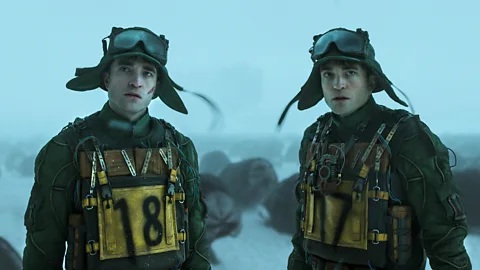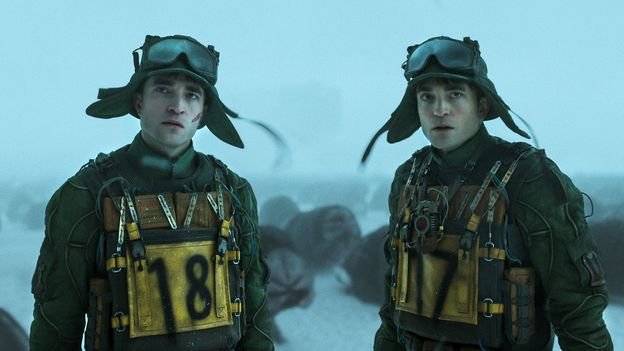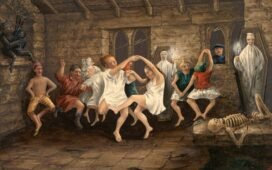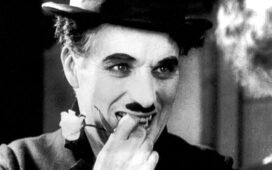 Warner Bros Entertainment Inc
Warner Bros Entertainment IncRobert Pattinson stars as multiple clones in the South Korean film-maker’s big-budget follow up to Parasite – and while the star himself is entertaining, the film as a whole is a mess.
No best picture winner at the Oscars has been as exciting in recent years as Bong Joon Ho’s Parasite – and not just because it was the first ever victor not in the English language. A scabrous takedown of the complacency of the rich, it was subversive in the way few awards players truly are, while its celebration within the gilded denizens of Hollywood added an extra layer of irony.
For fans of the South Korean film-maker, the good news is that despite his added commercial stock, his long-awaited follow-up is no less mischievous: a large-scale sci-fi filled with Hollywood stars and big themes it may be, but it mostly eschews the grandiose self-importance typical of such an endeavour. The bad news – and possibly an explanation for its delays in release – is that it doesn’t really know what approach it wants to take instead. All in all, it must be considered a serious disappointment from the director.
At least Robert Pattinson fans will be happy to get multiple (well, mostly two) versions of the actor for the price of one. He plays Mickey Barnes, a down-on-his-luck guy in a dystopian near-future, where floods of citizens are desperate to leave Earth, who signs up to a space colony program as an “expendable” – that is, a guinea pig worker who can be deployed in various perilous experiments for the benefit of humanity, only to be “reprinted” every time he inevitably dies, as a new cloned version of himself. Which is all well and good, until version number 17 of him unexpectedly survives after falling down an ice shaft on the planet Niflheim – and finds Mickey number 18 already installed in his living quarters. The question is: how do two versions of the same person learn to get along – or not?
The “reprinting” or human cloning premise is certainly one that should have plenty of narrative potential. It could be a rich source of philosophical inquiry, given what it raises about the nature of the self, death, and more besides. It could also, of course, be the basis for some decent satire, casting as it does its “expendables” scheme as the logical endpoint for a society that desires to exploit people without consequences. Yet on the former front, the film seems peculiarly uninterested in dealing with the questions it throws up, while in the latter respect, the comedy is so broad as to be completely toothless.
The colony is run by Mark Ruffalo as a veneer-toothed, bouffant-haired, callous showman – and it’s a groaningly obvious performance, from start to finish; just as tiresome is Toni Collette as his equally despotic wife, flashing a Cheshire Cat-sized grin of insincerity throughout. The brilliance of Parasite lay in how it took apart the superficial “niceness” of its privileged characters: here, however, they are so obviously and uninterestingly awful – characterisations worthy of a bad Saturday Night Live skit – that the effect is to defang the story of any genuine bite. That might be forgivable if the film was at least funny – but again and again lines and scenes strain for comic effect, but fail to deliver the goods.
Mickey 17
Cast: Robert Pattinson, Naomi Ackie, Mark Ruffalo, Toni Collette
Some of the actors fare better with the material: as Mickey’s lover Nasha, Naomi Ackie is enjoyably sweary and makes the most of a rousing anti-authoritarian speech, while Pattinson has fun with the antagonism between Mickey 17, a nebbish type with a touch of Steve Buscemi, and the surly, more rebellious Mickey 18. But then that, too, becomes sidelined as the pair put their animosity aside and join forces for an epic action climax, involving them meeting the planet’s native cockroach race the Creepers – think Dune’s gapingly-mouthed Sandworms with legs. Suddenly, Bong does indeed go for a conventional blockbuster earnestness he has hitherto rejected – and fails to make that fit too; like its hero, this is a film with a major identity crisis.
With a reported budget of $150m, it would certainly be a surprise if this curio can find the kind of audience it needs to succeed. In these risk-averse times, it’s good to see an expensive studio film that is at least deeply idiosyncratic – but you have to hope such a folly doesn’t make the money men even more cautious in future.









Recent Comments